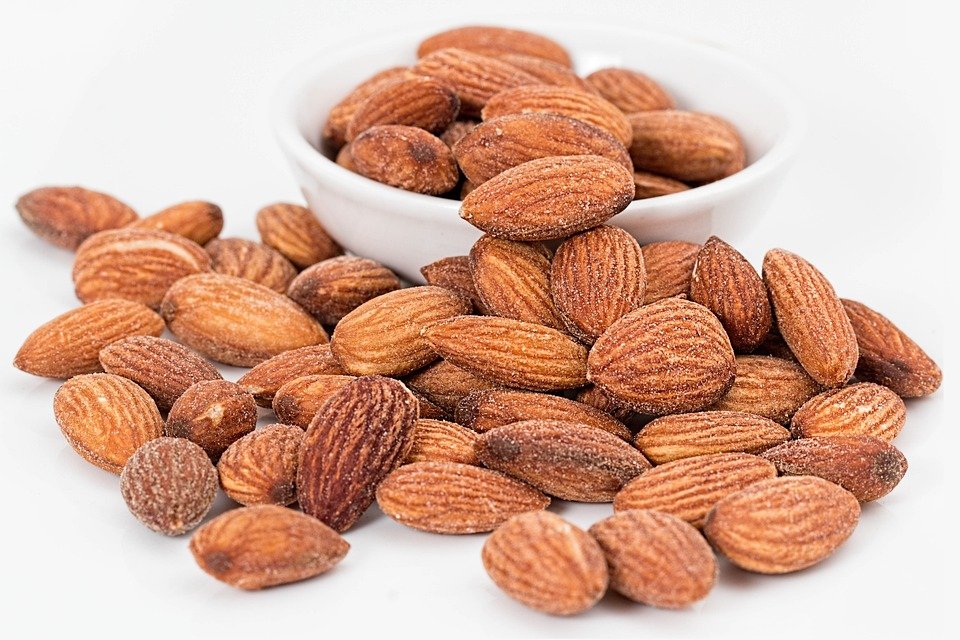Lose Weight Mediterranean Diet
Lose Weight with the Mediterranean Diet
Introduction
In today’s world, where fad diets and weight loss trends come and go, it’s essential to find a sustainable and healthy way to shed those extra pounds. The Mediterranean diet has gained popularity for its numerous health benefits, including weight loss. With its emphasis on fresh, whole foods and a balanced approach to eating, this diet offers a long-term solution for those looking to lose weight effectively. In this article, we will explore the Mediterranean diet and how it can help you achieve your weight loss goals.
1. Understanding the Mediterranean Diet
The Mediterranean diet is inspired by the traditional eating habits of countries bordering the Mediterranean Sea, such as Greece, Italy, and Spain. It focuses on consuming primarily plant-based foods, such as fruits, vegetables, whole grains, legumes, and nuts. Additionally, it includes moderate amounts of lean proteins, such as fish and poultry, and limited intake of red meat. Olive oil, rich in healthy fats, is a staple in this diet, as well as herbs and spices for flavoring instead of excessive salt. The Mediterranean diet promotes a balanced and varied approach to eating, emphasizing the importance of enjoying meals with family and friends.
2. The Weight Loss Benefits
One of the main reasons the Mediterranean diet is effective for weight loss is its emphasis on whole foods and the avoidance of processed and sugary foods. By choosing nutrient-dense options, you can feel satisfied and maintain a steady blood sugar level, preventing cravings and overeating. The diet’s focus on plant-based foods also means higher fiber intake, which aids digestion and promotes feelings of fullness. Furthermore, the Mediterranean diet includes healthy fats from sources like olive oil and nuts, which provide satiety and help regulate appetite.
3. Portion Control and Mindful Eating
While the Mediterranean diet places importance on food choices, it also emphasizes portion control and mindful eating. Rather than relying on strict calorie counting, this diet encourages listening to your body’s hunger and fullness cues. By practicing mindful eating techniques, such as eating slowly and savoring each bite, you can better recognize when you are satisfied and avoid overeating. Being aware of portion sizes and using smaller plates can also contribute to a healthier relationship with food and weight management.
4. Physical Activity and Lifestyle
The Mediterranean diet not only focuses on food but also promotes an active lifestyle. Regular physical activity is encouraged, as it complements the benefits of the diet and aids in weight loss. Engaging in activities you enjoy, such as walking, swimming, or cycling, can make exercise more enjoyable and sustainable. Additionally, the Mediterranean lifestyle encourages stress reduction techniques, like spending time outdoors, socializing, and prioritizing relaxation. These lifestyle factors contribute to overall well-being and weight management.
5. Sustainable and Long-Term Approach
One of the key advantages of the Mediterranean diet is its sustainability. Unlike restrictive diets that eliminate entire food groups or drastically reduce calorie intake, the Mediterranean diet offers a balanced and enjoyable way of eating. Its flexibility allows for occasional indulgences while maintaining a focus on nutritious foods. This approach makes it easier to adhere to the diet long-term and avoid the cycle of weight loss and regain often experienced with extreme diets. By adopting the Mediterranean diet as a lifestyle, you can achieve weight loss goals while enjoying a wide variety of delicious and nourishing foods.
Conclusion
The Mediterranean diet provides a practical and effective way to lose weight while prioritizing your overall health and well-being. Its focus on whole, unprocessed foods, portion control, and mindful eating makes it a sustainable option for long-term weight management. By combining this balanced approach with regular physical activity and a Mediterranean lifestyle, you can achieve your weight loss goals and improve your overall quality of life. Embrace the Mediterranean diet as a lifestyle change, and embark on a journey towards a healthier, happier you.
Faqs Concerning Lose Weight Mediterranean Diet
What is the Mediterranean diet and how does it help with weight loss?
The Mediterranean diet is a way of eating that is inspired by the traditional dietary patterns of countries bordering the Mediterranean Sea, such as Greece, Italy, and Spain. This diet emphasizes the consumption of fruits, vegetables, whole grains, legumes, lean proteins, and healthy fats, while limiting processed foods, red meat, and added sugars. It has been associated with numerous health benefits, including weight loss.
Important information:
1. The Mediterranean diet focuses on whole, unprocessed foods.
2. It encourages the consumption of fruits, vegetables, and whole grains.
3. Healthy fats, such as olive oil, are a key component of this diet.
What are the key principles of the Mediterranean diet?
The Mediterranean diet is based on several key principles that contribute to its effectiveness for weight loss. These principles include consuming a variety of plant-based foods, using olive oil as the primary fat source, limiting red meat intake, and enjoying meals with family and friends.
Important information:
1. The Mediterranean diet emphasizes plant-based foods, such as fruits, vegetables, whole grains, and legumes.
2. Olive oil is the main source of fat in this diet.
3. Red meat consumption should be limited, with a focus on lean proteins like fish and poultry.
What are the benefits of following the Mediterranean diet for weight loss?
Following the Mediterranean diet can lead to various benefits when it comes to weight loss. This diet is rich in fiber, which helps promote feelings of fullness and prevents overeating. Additionally, the Mediterranean diet encourages the consumption of nutrient-dense foods, which can support overall health and weight management.
Important information:
1. The Mediterranean diet is high in fiber, which aids in weight loss by promoting satiety.
2. It promotes the consumption of nutrient-dense foods, which can support overall health and weight management.
3. This diet has been associated with a reduced risk of obesity and improved weight loss outcomes.
What are some tips for incorporating the Mediterranean diet into my weight loss journey?
Incorporating the Mediterranean diet into your weight loss journey can be done by making gradual changes to your eating habits. Start by increasing your intake of fruits, vegetables, and whole grains, while reducing processed foods and sugary beverages. Experiment with Mediterranean-inspired recipes and try incorporating olive oil and herbs into your meals for added flavor.
Important information:
1. Start by gradually increasing your intake of fruits, vegetables, and whole grains.
2. Reduce your consumption of processed foods and sugary beverages.
3. Experiment with Mediterranean-inspired recipes and incorporate olive oil and herbs for added flavor.
Are there any potential drawbacks or considerations when following the Mediterranean diet for weight loss?
While the Mediterranean diet is generally considered safe and healthy, there are a few considerations to keep in mind. This diet may not be suitable for those with specific dietary restrictions, such as individuals with celiac disease or lactose intolerance. Additionally, portion control is still important, as overeating even healthy foods can hinder weight loss progress.
Important information:
1. The Mediterranean diet may not be suitable for individuals with specific dietary restrictions.
2. Portion control is still important, even when following the Mediterranean diet.
3. It is important to listen to your body’s hunger and fullness cues to avoid overeating.
1. Mediterranean diet guarantees weight loss
Contrary to popular belief, the Mediterranean diet does not guarantee weight loss on its own. While this diet is known for its health benefits and its potential to aid weight management, it is not a magic solution for shedding pounds. Weight loss is a complex process that depends on various factors, including calorie intake, physical activity levels, and individual metabolism. Therefore, simply adopting a Mediterranean diet without considering these factors may not lead to significant weight loss.
2. Eating unlimited amounts of fats is acceptable
Another common misconception about the Mediterranean diet is that one can consume unlimited amounts of fats without consequences. While the Mediterranean diet encourages the consumption of healthy fats, such as those found in olive oil, nuts, and fish, it is crucial to moderate their intake. These foods are nutritious and beneficial for overall health, but they still contain calories. Consuming excessive amounts of fats, even if they are considered healthy, can lead to weight gain. Therefore, portion control is key to maintaining a healthy weight while following the Mediterranean diet.
3. All Mediterranean foods are low in calories
While the Mediterranean diet emphasizes nutrient-dense foods, not all Mediterranean dishes are low in calories. Some traditional Mediterranean dishes, such as pasta dishes, may contain higher calorie content due to ingredients like pasta, cheese, and olive oil. While these foods can be part of a balanced Mediterranean diet, it is essential to be mindful of portion sizes and overall calorie intake. Incorporating a variety of fruits, vegetables, whole grains, and lean proteins alongside these higher-calorie options can help maintain a healthy weight.
4. Mediterranean diet is only about food
Many people mistakenly believe that the Mediterranean diet solely focuses on food choices. However, the Mediterranean lifestyle encompasses more than just what is on the plate. It integrates physical activity, social connections, and mindful eating practices. Regular exercise, such as walking, cycling, or swimming, is an integral part of the Mediterranean lifestyle and can contribute to weight management. Additionally, meals in Mediterranean cultures are often shared with family and friends, promoting a sense of community and enhancing overall well-being.
5. Mediterranean diet eliminates all processed foods
While the Mediterranean diet emphasizes whole, unprocessed foods, it does not completely eliminate processed foods. In modern times, processed foods have become more prevalent even in Mediterranean countries. For instance, cured meats, canned goods, and certain dairy products are still consumed in moderation. Nonetheless, the Mediterranean diet encourages minimizing highly processed and refined foods, such as sugary snacks, fast food, and processed meats, as they are associated with negative health effects. It is important to strike a balance between traditional Mediterranean foods and limiting processed options for optimal weight management.
Lose Weight Mediterranean Diet
#Lose #Weight #Mediterranean #Diet


